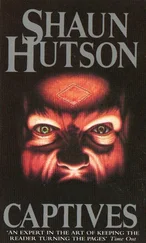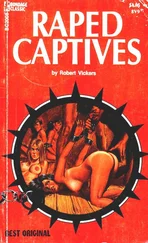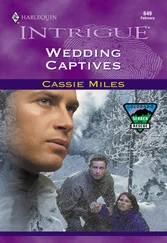Norman Manea - Captives
Здесь есть возможность читать онлайн «Norman Manea - Captives» весь текст электронной книги совершенно бесплатно (целиком полную версию без сокращений). В некоторых случаях можно слушать аудио, скачать через торрент в формате fb2 и присутствует краткое содержание. Год выпуска: 2014, Издательство: New Directions, Жанр: Современная проза, на английском языке. Описание произведения, (предисловие) а так же отзывы посетителей доступны на портале библиотеки ЛибКат.
- Название:Captives
- Автор:
- Издательство:New Directions
- Жанр:
- Год:2014
- ISBN:нет данных
- Рейтинг книги:3 / 5. Голосов: 1
-
Избранное:Добавить в избранное
- Отзывы:
-
Ваша оценка:
- 60
- 1
- 2
- 3
- 4
- 5
Captives: краткое содержание, описание и аннотация
Предлагаем к чтению аннотацию, описание, краткое содержание или предисловие (зависит от того, что написал сам автор книги «Captives»). Если вы не нашли необходимую информацию о книге — напишите в комментариях, мы постараемся отыскать её.
Captives
This is a moving account of a country shaken by communism and anti-Semitism and haunted by recent atrocities, from "a distinguished writer whose vision of totalitarianism is close to Kafka's cloudy menace, universal yet internalized" (Richard Eder,
).
Captives — читать онлайн бесплатно полную книгу (весь текст) целиком
Ниже представлен текст книги, разбитый по страницам. Система сохранения места последней прочитанной страницы, позволяет с удобством читать онлайн бесплатно книгу «Captives», без необходимости каждый раз заново искать на чём Вы остановились. Поставьте закладку, и сможете в любой момент перейти на страницу, на которой закончили чтение.
Интервал:
Закладка:
Norman Manea
Captives
INSTEAD OF AN INTRODUCTION
Captives is of another place and time. It was published in the Socialist Republic of Romania in 1970, when the provisional so-called “liberalization period” was still confusing and misleading, and yet often encouraging to many artists and intellectuals. At about that time, unfortunately, Ceauşescu visited China and North Korea, where he became fascinated by the enthusiastic obedience of the “masses,” and upon his return he tried to impose a harsher totalitarian atmosphere back at home. Yet the hedonistic and self-centered nature of the people, as well as external evolution, slowly subverted his nationalistic socialism until its eventual collapse in 1989.
Captives , my first novel, expresses a radical separation from official ideology, drastically departing from all that was heavily promoted and praised by the Party. And although many pages were cut by the censors, it still, by some miracle, appeared in print.
The book’s three main characters are vulnerable, weak, and defeated individuals: the complete opposites of the heroes and heroines of the system’s exemplary novels. Thomas Mann’s statement in Death in Venice about weakness — “one might well wonder whether the only possible heroism was the heroism of the weak” — resonated powerfully with me at that time, in our suffocating impasse. These protagonists, connected through a spiral that weaves through three parts, represent complementary faces of captivity: the quasi-burlesque energy of a frustrated schoolteacher, never tiring of her hunt for new illusions despite their humiliating ends; the sensitive and lonely daughter of a suspected war criminal who has committed suicide; and her young colleague, an engineer who — seeing in her the ghost of his lost sister who perished during the Holocaust — brutally ends their brief affair. This young engineer, who slowly comes to understand the perversity of this socialist paradise, becomes one of its wounded outsiders, just as the young woman has.
To create this enterprise, I had to find an adequately unconventional and experimental literary form, and so I propelled these characters through spiraling, self-sufficient, minimalist narratives, each one as larval as our own lives spent pushing our ways through a police state of suspicion, reticence, and submission. I was deeply aware of the political and aesthetic risks such a book might pose: the novel offered a multidimensional contrast to the Party’s leadership’s cosmetic image of the dynamic social “progress.” The book was a challenge to authority, to myself, and to the reader, but didn’t Faulkner say that a writer should be judged by the risks he takes, even if risks are conducive to failure?
Sometimes adopting the heavily descriptive methods of the so-called nouveau roman, Captives also serves as a document of the epoch, depicting the manner in which a self perceives itself in language and is organized by language. How else can anyone escape from the wooden discourse of an ideological system?
The passive voice, so important to understanding the book, is not routine in English, and the novel’s “hermeticism” was an imposing constraint, whereby the object of an action is influenced or even changed, without the voice necessarily pointing to a certain subject that has caused the action. The broken characters are subdued, suspected, and distorted by obscure forces.
I strove to push the reader into a kind of implicit solidarity with my characters, through a labyrinth of twisted narratives, still organic to life in an oppressive environment. As usually happens in a suppressed society, the hidden sides of reality are decoded slowly, displaying their meaning only toward the end of the book, where — I hope — the connections and enigmas open up. Lack of freedom of choice in a country where the State is the only employer, and where citizens are owned by it, endangers any individual refuge. My world here is a kind of Kafkaesque “penal colony” with additional local ambiguities, corruption, double-talk, and double-dealing.
By now it must be obvious why I have been somewhat reluctant to publish this book here. Already more than twenty years have passed since my friends Barbara Epler and Griselda Ohannessian decided to bring out Captives at the earliest possible convenience of the author, and in the meantime New Directions has remained admirably convinced about the project (or perhaps about the essential and heroic role of a good publisher, ready for “difficult” books, even in a time when writing and publishing seem quite endangered everywhere in the world). In my newly published twenty-five-volume Collected Works in Romania, I found the opportunity to revisit this novel, making some minor changes and cuts in order to — at least partially — decode the sometimes overwhelmingly puzzling text, with its allusions and tricks, and its specific blind alleys. I have tried to help today’s readers, in the West and even in Romania, to thread the maze of a narrative placed in a closed, totalitarian setting. This English translation follows the second edition of Captives .
Aware of the new risks this book faces, now, in my new country and in this troubled time of ours, I can only be grateful to my consistently supportive publisher, and also to Tynan Kogane, my editor, to my excellent translator, Jean Harris, and to my collaborator Carla Baricz.
Let’s also trust the patient reader, our peerless peer, who might discover in these pages a reason to think about the strange topics as well as the curious shapes of such a literary adventure.
NORMAN MANEA
BARD COLLEGE, AUGUST 23, 2014
CAPTIVES
“She”
LONG, INTERMITTENT THREADS of rain, broken and scattered the delayed perception of rain. His jacket is a soggy bandage for arms and shoulders. The streets meeting at the corner of the building, a likely setting for spectacular revolts to come: the young Christ committed to ironic beggary, deprived of violence, spectacular through the lack of inherent violence in his abandoned gestures — his beard grown wild, disheveled hair covering his neck and ears, the long, gathered curls lightened by gracious, sky-blue flowers — defiant in the confusion of a new day.
He stands on the street corner motionless under the rain and the scrutiny of so many eyes struck by his bizarre appearance, and his arms are as inert as his gaze, which begs for the solidarity of a smile, a flower, some signal of affirmation, or — simply, yet more incredibly — for physical violence, curses, or reprimands for his uncut hair, dirty beard, and limp body exhausted under the rain. The vagrant blankly stares at a place in the wall where a void in the bricks forms a crocodile-shaped hole. Some passerby would like to convince him that he’s mistaken: it’s just a trace of lime left by some whitewasher’s brush, a patch of lime — not a hole, by any means.
This wandering son of the earth yearns to be one with the rain, to see once more the lime spot lapped by raindrops; only later, when he had already started to forget, a little old lady beside him would recall: several years ago there really had been a hole in that exact spot on the wall, which they filled at some point. His hands shook. The horror passed through him again. Then the abandoned gaze came back: hands forgotten, mind blank, glad to know nothing, to be certain of nothing, with nothing to retain or possess, nothing but alienation and sleep, far away and alone — that’s all.
Motionless under the rain. Carved onto the street corner like a filthy inscription, with a beard and long hair, indifferent to the ironic looks and insults of all the brave and decent citizens around, spending long hours under the rain, withdrawn, somnolent, in everyone’s way: this signified more than the single, unwieldy, stammered, unsuitable phrase cast into the void of the office that he’d just left: “I can’t stand typewriters anymore.”
Читать дальшеИнтервал:
Закладка:
Похожие книги на «Captives»
Представляем Вашему вниманию похожие книги на «Captives» списком для выбора. Мы отобрали схожую по названию и смыслу литературу в надежде предоставить читателям больше вариантов отыскать новые, интересные, ещё непрочитанные произведения.
Обсуждение, отзывы о книге «Captives» и просто собственные мнения читателей. Оставьте ваши комментарии, напишите, что Вы думаете о произведении, его смысле или главных героях. Укажите что конкретно понравилось, а что нет, и почему Вы так считаете.












